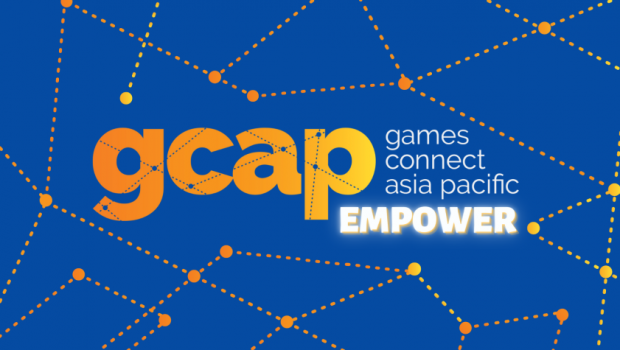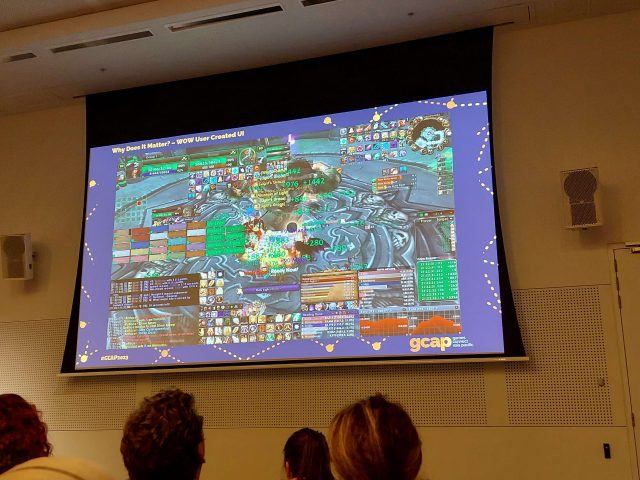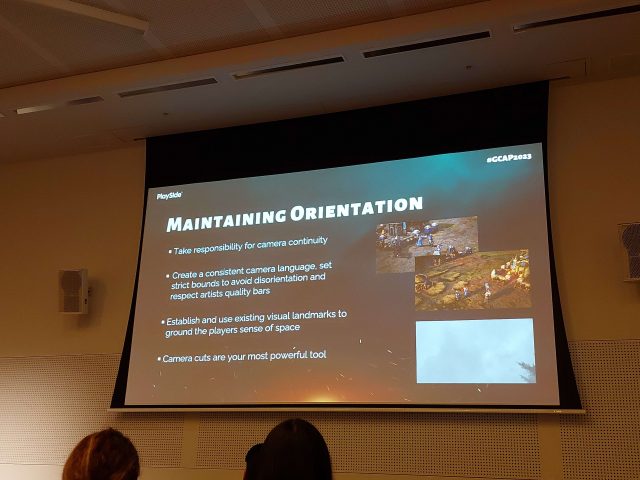Games Connect Asia Pacific! @GCAPConf #MIGW #GCAP23 @PAX
GCAP, or Games Connect Asia Pacific. Is Australia’s premier professional development and networking event for the game development industry. Where leading experts in the field of game development, come together to offer up-skilling, and connections for upcoming designers and developers. Through the use of education, knowledge sharing and networking. GCAP caters to a range of disciplines, fast becoming one of Australia’s largest outlets for professional speakers from around the world to impart skills and knowledge and rare opportunities for attendees to get hands on experience, take part in interactive workshops and maybe even pitch an idea to some developers directly!
In recent years, Australia has begun to impress global audiences with gaming titles fresh from the land down under. The industry has been slowly, but steadily expanding. To a point now the world leaders in game developments are taking notice and plucking talented studios and developers out of the rough. The field is ripe for the picking and there are so many new talented developers, some that are looking for that extra little bit of help and advice to take their craft to the next level. While others are keen to make a splash of their own and are just looking for the right networking to achieve their lofty goals. GCAP brings them together in a relaxed, yet informative environment, allowing creators of all levels to rub shoulders with professionals. From practical sessions for studios big and small, looking to grow sustainably, to educating and exploring new tools and techniques.
Here we see a bad UI, don’t do this
Personally, before this year, I’d never even heard of GCAP. But after attending, I can definitely see the merit for such an event. Over the course of three jam packed days, Games Connect Asia Pacific provides tons of panels, focusing on all different aspects of the development process. My first panel of the event was all about how to empower players with inclusive and intuitive UI systems, probably my highlight of all the panels I attended too. It was full of useful, yet easy to digest information about how UIs can make or break a game. Brooke Luder for Gameloft in Brisbane has an amazing way with words, perhaps it’s because she’s developed UIs for kids and adults alike. Her level of experience and intuition is remarkable. She explained her processes on how to make the systems they use easily enough to understand for children, but with enough detail that adults can still breeze through it and feel their own achievements aren’t undervalued.Her process of starting with “Who is the player?” no doubt is the perfect place to start when undertaking the task of crafting the perfect user interface. Follow it closely by what type of game or content are you trying to make and you have the two ingredients necessary for success.
Throughout my time at the event, I attended panels about companies being acquired by larger studios. The processes, procedures, challenges and benefits with the “change in management”. Some teething issues to be sure, but sometimes being acquired by a larger studio can take the weight off a lot of other issues that a small team can’t manage. It can be very daunting too, for studios to be acquired by larger entities and it’s refreshing to hear the kinds of methods put in place by leadership teams to help manage to process, address any concerns and make transitions as smooth as possible. For what’s more important than the love of games?
I make no secret of it, through the choice of games I choose to play most frequently. When I look at a game, I will always choose the game that has an interesting story. As a fiction writer in my youth, less so these days (adulting am I right?), I can’t help but love a good story or game rich in lore. What better way to convey a story, than with the use of cutscenes? How are they crafted? How do you know what type of cutscene to make? Do you use pre-rendered cutscenes, or do you make in engine scenes with seamless transition between game and scene? Derek Pritchard of PlaySide Studios helps us understand just how to bring a campaign narrative to life with his wealth of experience in both pre-rendered and in game cutscenes. It’s great to see how different styles better suit certain game genres over others, for example; RTS games tend to favour in game cutscenes over pre-rendered, like Red Alert 3, a bit of a classic I know. But the use of this style suits and RTS game because the majority of them are play from a top down perspective, so they have little use for pre-rendered cutscenes, except when faction leaders appear on screen or in-between missions.
From crafting cutscenes, to dank dreams and goated memes. Turning a small indie game about the dankest, goated memes into a full fledged sequel. A panel of good laughs with an interesting quirk. How does one turn a small, free to play game about memes into a paid sequel? The trials and tribulations of what is copyrighted, how to avoid engaging in it and what can you do to achieve the same levels of humour, without the use of the memes that made up the original game? Is it still the same game without them anymore? Panels on gamer rage and parasocial behaviour between devs and players.
GCAP is more than just about the connections between devs and players, these were just a few of the offerings on show that I checked out. There were others focusing on tech talks, giving tips and tricks on how to get the most out of the software tools in the industry. Some about things to remember before shipping your game. Researching your player base, making the most out of a small dev team and many more. There were three booths on site as well, showcasing some of the work some of the hosting studios have in the pipeline, previously showcased at other events and some available now. With devs on hand who were all too happy to have a chat about their games.
As a gamer, the event was probably wasted on me. As I have neither the talent, nor the desire to make games. But as a writer and someone who enjoys learning about the processes at times, I found the whole experience enlightening. Would I go again? Probably not, as the event itself is much more directed at helping developers, designers, studios and staff have a better understanding, as well as providing some rare opportunities to rub shoulders, get hands on and talk directly with experts. At times I felt a little out of place, there was no cosplay, there was no hyped up atmosphere. This was my first time attending such a professional event but, I can see just how critical events like these are for a growing gaming industry.
I want to personally thank the GCAP team for inviting us, this was an enlightening experience that I’m glad I threw my hand up to try. It was very interesting to see some of the other side of games that gamers themselves don’t often get to see. And thanks to all the volunteers who step up and help run events like these.









